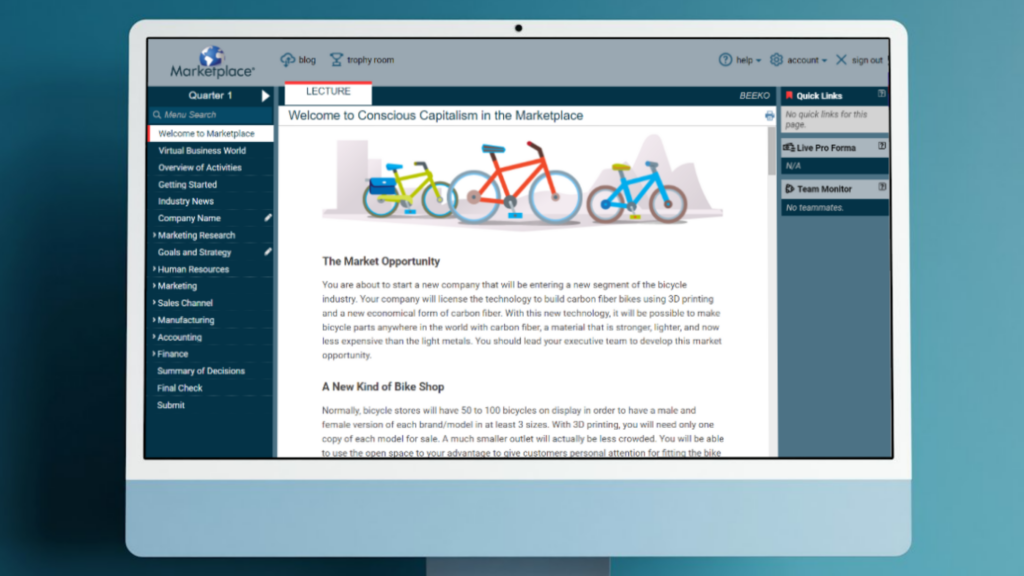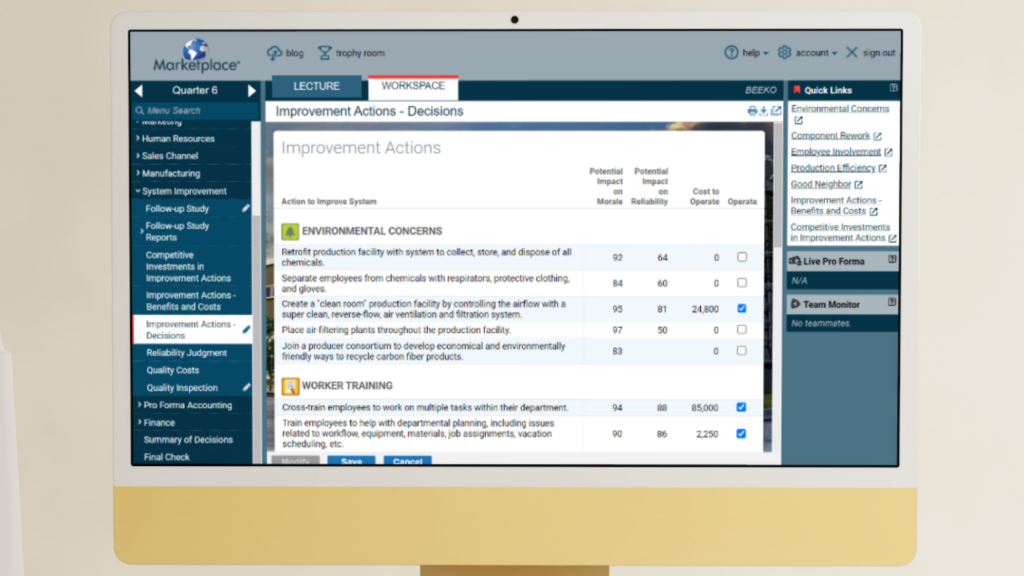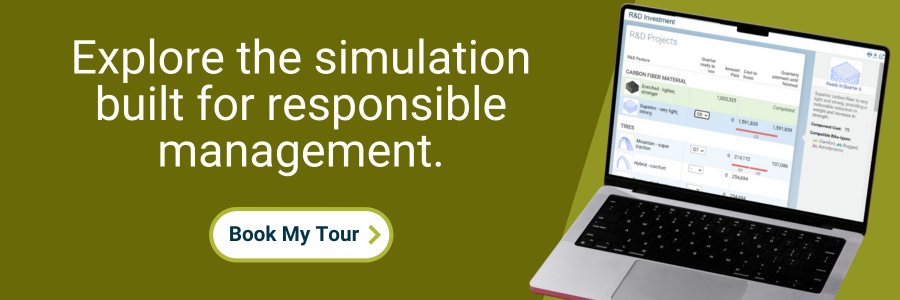Challenging MBAs with the Conscious Capitalism Business Simulation
When it comes to teaching societal impact, it’s not enough to give students the right answers. Accrediting bodies want to see that students are fully engaged with societal impact issues.
How can educators meet that standard? Western Governors University relies on the Conscious Capitalism business simulation by Marketplace Simulations.
What is Conscious Capitalism?
Conscious Capitalism is a responsible management model that embodies the spirit of ESG, PRME, Triple Bottom Line, and similar frameworks. Conscious Capitalists believe that business is a force for good, and they adhere to four key principles:
- Higher Purpose
- Conscious Culture
- Conscious Leadership
- Stakeholder Orientation
The Conscious Capitalism business game equips students to build socially responsible businesses while turning a profit.
Recently, we asked Keegan Cantrell, a Western Governors University MBA graduate, to share his experience.
Conscious Capitalism Business Game as a Capstone Project

Keegan came to WGU with a wide range of business experience. He’d worked in sales, information systems, marketing, general management, and go-to-market strategy.
“To me, getting an MBA is all about me fortifying business knowledge,” Keegan says.
Keegan’s WGU program used the Conscious Capitalism simulation for its capstone project. It was a perfect fit for Keegan’s goals.
Players start a business in a new market—3D-printed carbon fiber bicycles. Students can play against each other or against computer-generated teams. Keegan’s class played as individuals against the computer.
Once they start a business, students oversee all major business functions. Along the way, they face a host of societal impact challenges and opportunities. Players must learn how to gain market share while handling employee morale, customer safety, environmental impact, and more.
Learning from Your Mistakes
The Conscious Capitalism business simulation covers seven key areas of business. Students coordinate efforts across strategy, marketing, sales, finance, human resources, production, and societal impact management.
“If you don’t do your homework, you’re going to have a bad result,” Keegan says. “You’re not going to cheat the system.”
Keegan blew away his competitors with his initial marketing efforts. Unfortunately, he hadn’t invested enough in production to keep up with demand. This not only created ill will toward his own brand, but it also created demand for his competitors.
As Keegan’s course mentor told him, “This is not as much about you just making all the right decisions as it is inevitably making a poor decision and then having to justify why that happened and what you would do differently.”
Keegan learned to analyze the data and learn from his mistakes. The business game has six decisions rounds, providing ample opportunity to adjust strategies.
Exploring the Nuances of Societal Impact

From the start, Keegan knew he needed to take the societal impact factors in the game seriously. His own career has proven the importance of employee safety and conscious strategy.
“I know from practical experience that at first, people think, ‘Oh, well, I want short-term gain, so I’m not going to invest heavily in these things long-term.’ But it’s just going to bite you … later,” Keegan says.
Performing well in the Conscious Capitalism business simulation requires a sense of nuance. Players don’t start with unlimited resources. They need to understand how their choices around each issue affect their bottom line.
Some societal impact elements show up as challenges to solve. Others show up as opportunities for investment. Throughout the game, players must assess how their entire management strategy impacts stakeholders.
Driving Deeper Learning Through Competition
Competition is one of the most powerful elements of the simulation. Keegan was excited to see how well the computer teams would compete. To his surprise, they were a brilliant match.
“I got so into it because that’s how business really works,” Keegan says. “If you don’t continue to wake up every morning anxious and try another thing and do another thing, somebody’s going to be right behind you, ready to take that position.”
Ultimately, Keegan hopes more schools will give students experiences that “suck you in.”
“It was a perfect way to end my program with something engaging,” Keegan says, “a strong experience that reminded me of all the things that I do actually need to be thinking about in business.”
Give Your Students the Best in Societal Impact Education
Ready to try Conscious Capitalism in your own class? Book a free demo to see it in action!


